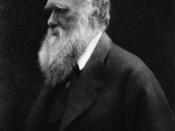Do We Have To Think Scientifically In Order To Find The Truth?
In the past it has primarily been the role of religion to explain the world around us, in the 20th Century science seems to have taken religions place as the main explanation for many people. The rise in belief of science has led to scientists being expected by the public to be advocates of the truth. In recent cases the desire for knowledge into possible effects on human health, such as the BSE crisis or the levels of radiation from mobile phones, has led to the public demanding the truth. Truth can also be applied to information, when can information be accepted as true?
Thinking scientifically is the ability to analyse measurements and observations and to understand these by using logical thought and reason, often with an absence of emotion. This can cause problems as an absence of emotion can often lead to ethical problems, such as the development of methods of breeding dangerous biological weapons, if ethics were considered beforehand these would not be developed as they have no real use apart from as weapons of mass destruction.
In the past the majority of people believed that 'seeing is believing' and for something to exist they need to see it with their own eyes, there are still many people who believe it today. Thinking scientifically has allowed us to believe (although it is still speculated it is largely believed) that sub-atomic particles such as the quark exist, although the larger quarks are far smaller than the shortest wavelengths and so cannot be 'seen'. Science does allow us the ability to analyse the effects caused by these particles. So thinking scientifically is the only way to understand the world around us:
"Mathematics... possesses...only truth"
However these results are...


